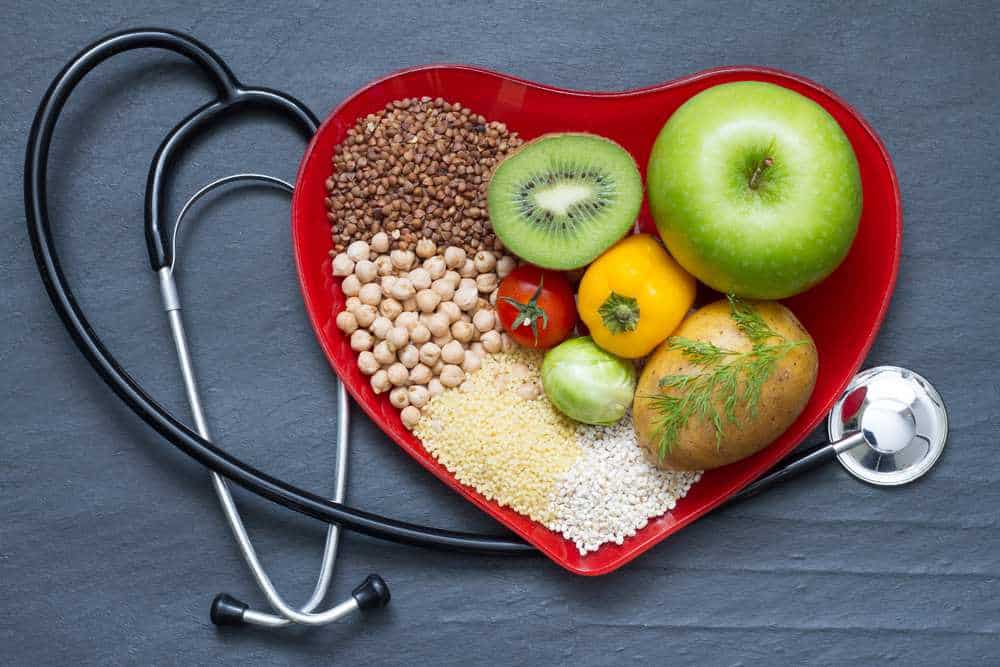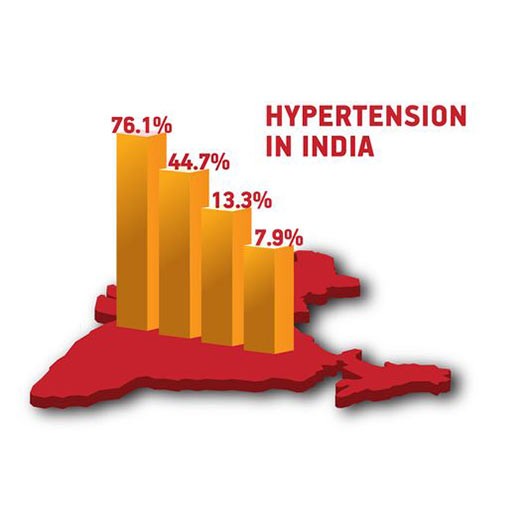 We all want to lead healthy lifestyles. To stay fit, we join a gym, exercise regularly, adopt a healthy diet and so on. These habits become essential as we age, owing to our sedentary lifestyle. Add to this our love for processed and unhealthy food that plays a crucial role in the development of heart diseases.
We all want to lead healthy lifestyles. To stay fit, we join a gym, exercise regularly, adopt a healthy diet and so on. These habits become essential as we age, owing to our sedentary lifestyle. Add to this our love for processed and unhealthy food that plays a crucial role in the development of heart diseases.
You must have heard the term ‘you are what you eat’. Staying true to the dictum, our body responds to anything and everything we eat. No doubt, it is important to reconsider our diet if we want to have an ailment-free future. It is possible that some of us may inherit genes that make us susceptible to certain disorders. Many major illnesses including cardiovascular diseases can be genetically inherited. Although genetic testing can inform you in advance, there are a few ways to prevent them from occurring. Even if one is not afflicted by ailments, following a nutritious diet plan is necessary. Maintaining a healthy diet may not only delay or altogether prevent the onset of diseases, but it also keeps you healthy and full of energy.
How Does A Bad Diet Lead To Heart Diseases?
Unhealthy eating habits can result in heart diseases as bad cholesterol (LDL) clogs the blood vessels (arteries), which increases the chances of strokes, heart attacks and heart failures.
In this article, we discuss some of the key features of healthy eating and diet that may prove effective against developing a heart disease.
4 Tips To Plan A Heart Healthy Diet
-
Quantity is as important as Quality
It’s not just about what you eat, how much you eat is equally vital. Eating to your heart’s content is not the aim here. Even tiny portions of nutritious food are enough to power you through the day. The thumb rule is to eat slowly and in small quantities. Instead of having large meals during lunch and dinner, divide your meals into smaller snackable portions that are easy to digest.
-
Include more fruits and vegetables in your meals
Fruits and vegetables make for good heart-friendly food with low calories and high nutrition. Rich in vitamins and minerals, plant-based food items are extremely low in fats. Also, they contain substances like anti-oxidants that prevent ageing and thereby, keeping you young and healthy. By incorporating fruits and vegetables, you can cut back on high calorific foods such as meat. Similarly, you should try to eliminate unhealthy processed food and snacks which contain an excess of salt.
-
Choose whole grain food
Switch over to whole grain food products by slowly substituting refined foods. Whole grains provide the necessary fibre and nutrients that are extremely beneficial for the heart. You have whole grain options available for cereals, bread and even pasta.
-
Opt out of unhealthy fats
An important part of a heart-healthy diet is to limit the consumption of saturated and trans fats. These can cause a rise in cholesterol levels in the blood and increase the risk of developing coronary artery disease. High cholesterol levels are also responsible for the deposition of plaque in the blood vessels, causing atherosclerosis. This condition poses a risk of heart attack or a stroke.
How Can You Plan Your Heart-healthy Diet?
A heart-healthy diet plan and a proper exercise regime can help you reduce the risk of heart diseases. Following a healthy diet is extremely necessary if you want to lower your blood pressure and cholesterol levels that trigger heart diseases. While preparing a diet plan, ensure that you note the number of calories you are going to consume. The calorie level should ideally be around 1200 to 1500 calories a day. Based on your food preference, make a heart-healthy diet plan by noting down the number of calories.
List Of Foods That Are Good For The Heart With Their Other Benefits
-
Fruits and Vegetables
They are rich in antioxidants which helps to boost the body’s immune system. Besides this, they provide the body with much-needed nutrients, vitamins and minerals.
-
Soluble Fibre
Food products rich in soluble fibre can help you improve your digestion. Besides this, they contribute in reducing the cholesterol levels in the body, lowering the risk of cardiovascular problems.
-
Omega 3 Fatty Acids
They play an essential role to slow down the formation of plaque on the walls of the arteries, reducing high blood pressure and triglyceride levels.
QnA
What Is Considered A Heart-healthy Diet?
Fruits and vegetables like spinach, broccoli, tomato, asparagus, bell peppers and carrots;, soluble fibre like oats, beans and berries; and Omega 3 Fatty acids like walnuts, chia seeds and hemp seeds comprise a heart-healthy diet.
What Should You Not Eat On A Heart Diet?
While on a heart diet, make sure that you do not eat fried foods, processed meats, pastries, non-dairy creamers, junk food, butter, candy, ice cream, sweet bread and waffles.
What Foods Are Bad For Your Heart?
Sugar, packaged foods, bacon, red meat, pizza, pasta, salt, fat, baked goods, desserts, processed meats and butter are some food products that are harmful to your heart.
What Three Foods Cardiologists Say To Avoid?
Meat products like processed meat, potato chips and other packaged snacks and dessert are the top three foods cardiologists recommend to refrain from consuming.
What Diet Do Most Cardiologists Recommend?
Cardiologists advise heart-healthy diet tips. They suggest following a diet that includes legumes and nuts, low-fat dairy items, whole grains and various vegetables and fruits.
Visit our wellness blogs to know more about ways to improve your health.
Bringing about the necessary changes to your diet can lead to life-long benefits.





 1800-270-7000
1800-270-7000







It’s truly very complex in this active life to listen news on TV, therefore I only use world wide web for that purpose, and take the latest information.
I’ve recently started a site, the information you offer on this
site has helped me tremendously. Thank you for all
of your time & work.
Remarkable! Its in fact amazing paragraph, I have got much clear idea on the topic of
from this piece of writing.
Some genuinely choice posts on this web site, saved to fav.
I’m extremely impressed with your writing skills as well
as with the layout on your blog. Is this a paid theme or did you customize it yourself?
Anyway keep up the excellent quality writing, it is rare
to see a great blog like this one these days.
Thanks a lot, I needed to get this in a clear and simple way
Great valuable information! You have covered everything on healthy diet that everyone should know about it. I’ve subscribed to your email list so whenever you publish a new article, I will keep aware of that. Keep sharing such good stuff!.